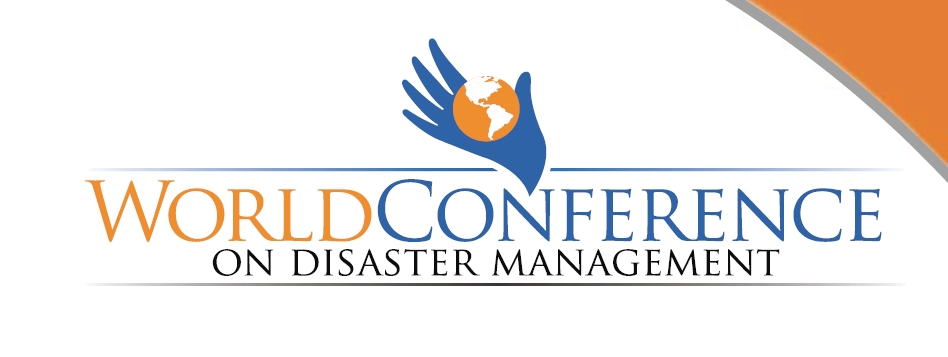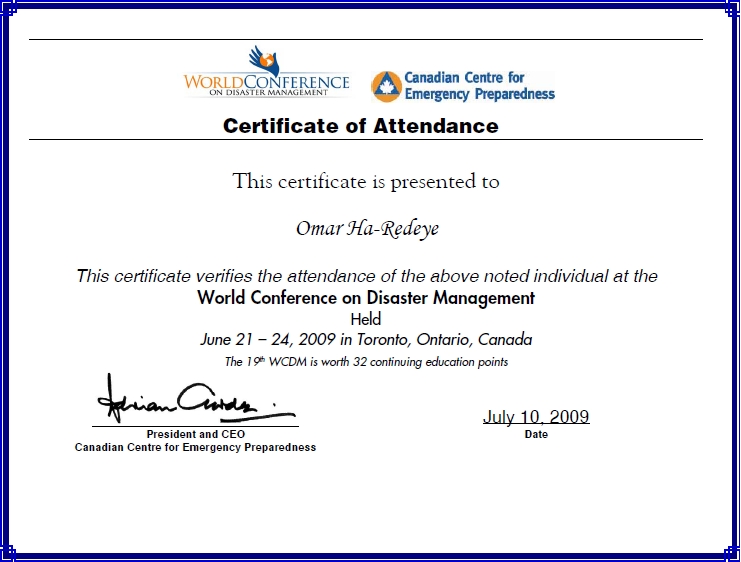2009 World Conference on Disaster Management
Omar Ha-Redeye attended the 2009 World Conference on Disaster Management. He has attended this conference regularly for several years, and has spoken at it before.
Day 1
Eat Dessert First – Using Social Media Channels to implement Company or Community Recovery Faster workshop by Bill DelGrosso, Director of Emergency Management for Professional Organization for Women’s Enrichment (EMPOWER).
Best Practices in Crisis Communications by Boyd Neil, Senior Vice President, and Jane Shapiro, National Practice Director, at Hill & Knowlton Canada.
A write-up on the second workshop can be found on Slaw and Social Media Mafia
Day 2
John Merkovsky spoke on Building Resiliency in the Face of Global Risks, and Scot Phelps
of Southern Connecticut State University shared Ten easy, cheap, or fast technologies you should know about.
What Hackers Don’t Want You to Know about Identity Management was shared by Jeff Crume, while Graham Walsh of Gowling Lafleur Henderson LLP presented Business Continuity and Risk Management: A Legal Perspective.
Prof. Martin Rudner of Carleton University gave a provocative talk entitled Communication, Collaboration, and Co-operation in Countering Terrorist Threats to Critical National Infrastructure. What the talk gained through sensationalism it lost in accuracy and substance, and it would have little use in mitigating future threats.
One of the final talks for the day was given by K.C. Rondello on EMOC: Emergency Management On Campus — Student Assistance in University Disasters.
Day 3
The third day started with a plenary session by James Lukaszewski on How to Avoid Career-Defining Moments in Crisis: Manage The Victim Dimension, followed by a break-out session with Jeannette Sutton on Warning Systems, Risk Communication, and New Social Media: How Technological Innovation is Changing the Landscape for Disaster Communications.
Dana Libby shared some New Mapping Tools Aid in Response to the 2008 Hurricane Season, and Dan Hefkey spoke on some First Nations programs with Culturally Appropriate Emergency Management Programming.
The afternoon continued with David Tickner on Pandemic Tipping Points – planning for and responding to the collateral impacts of failing critical infrastructure and Applying recent lessons from the Indian Ocean to improving tsunami warning along Canada’s West Coast by Peter Anderson
Day 4
An international panel, with Peter Powers, David Parsons, Nathaniel Forbes, John Stagl, and Raph Dunham gave A Global Perspective on Resilience.
Patrick Helm spoke on a Systems Approach to National Security Risks.
Amit Yorand presented Taking the Uncertainty and Doubt (But Not the Fear) Out of Information Risk Management.
The closing plenary was given by Warren Faidley, author of the bestselling book, Storm Chaser.


